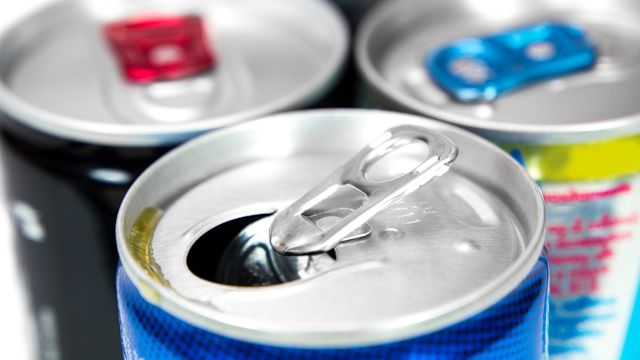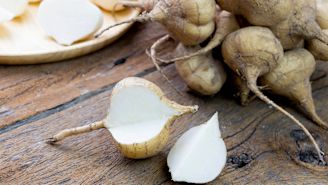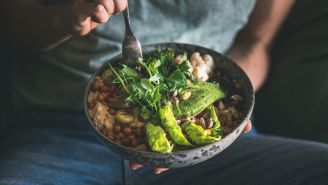It’s 2 p.m. You’re at your computer but wish you were in bed napping. You need a boost. You could go for the old standby of coffee or tea, but today you feel like you need an extra kick.
“All-natural ingredients,” the label on the energy drink reads. How bad could that be?
“If I were an energy drink marketer, I’d say ‘We have naturally occurring ingredients that increase energy and focus,’” says Dale Yoo, MD, a cardiac electrophysiologist with Heart Rhythm Specialists in McKinney, Texas. “But the problem with that is there are no known toxic ranges for a lot of these ingredients.”
In other words, just because something is derived from nature, doesn’t mean it’s always healthy.
What’s more, many manufacturers have proprietary blends of ingredients—which means the exact constituents may not be completely clear to consumers—and the U.S. Food and Drug Administration (FDA) doesn’t scrutinize these drinks.
“It may sound like a healthy beverage, but you could be tripling or quadrupling your stimulant intake,” Dr. Yoo says. In some cases, that could cause an irregular heartbeat and dangerous increases in heart rate and blood pressure.
Energy drinks and potential heart dangers
Stimulants such as caffeine raise the heart rate and Yoo points out that anything that increases the heart rate has the potential to cause heart rhythm problems.
One 2020 study published in the journal Cureus documented the case of a 22-year-old male with no history of cardiac problems who developed a heart condition called atrial fibrillation after drinking two energy drinks one morning. (Atrial fibrillation occurs in less than 1 percent of people younger than 60).
A 2019 study published in the Journal of the American Heart Association found that drinking 32 ounces of energy drinks (about 4 cups) in under an hour could increase a young adult’s risk for abnormal heart rhythms and increased blood pressure.
In rare situations, energy drinks have even been linked to sudden cardiac death or heart failure. A 2021 study published in BMJ Case Reports reported an incident in which a 21-year-old man developed shortness of breath and later heart failure after drinking four energy drinks every day for almost 2 years.
The dangers of excessive caffeine and other stimulant chemicals are most pronounced in people who already have heart trouble, says Yoo. And in many cases, people aren’t aware that they have heart issues, putting them at greater risk. This has been a particular concern for adolescents.
“The risk is higher if you have a preexisting condition like a heart defect or high blood pressure,” he says. “Stimulants can also increase the risk of heart attack.”
It’s more than just the caffeine
The Centers for Disease Control and Prevention (CDC) reports that some of the most prevalent reasons people visit emergency departments (ED) after drinking energy drinks include:
- Dehydration
- Heart problems
- Anxiety
- Insomnia
While the high levels of caffeine in energy drinks is concerning, the caffeine combined with other ingredients increases the potential health risks. Guarana, taurine, kola, and yerba mate are popular energy drink ingredients, says Yoo, and they either contain caffeine or are themselves stimulants.
How much is safe?
A one-cup serving of coffee contains between 80 and 100 milligrams (mg) of caffeine. Some energy drinks may have up to two or even three times that amount. The FDA says 8 fluid ounces of energy drinks can contain up to 250 mgs of caffeine, which is where problems start to arise.
“We know there are antioxidants with coffee that may have a beneficial effect on stamina, attention, and blood pressure. But at 400 to 500 mg of caffeine, the harms are increased,” says Yoo.
Moderation is key
There are several symptoms that spell trouble for regular consumers of energy drinks. Here are a few things to look for.
Palpitations
Heart palpitations can feel like your heart is beating too fast, beating too hard, fluttering, or skipping a beat. These can be an early sign of arrhythmia (an irregular heartbeat), among other things, says Yoo.
Elevated blood pressure
High blood pressure rarely has symptoms, but it’s something you need to monitor regularly, especially if you have a heart condition or experience palpitations. “We shoot for 120/80 mm Hg,” says Yoo. “If your blood pressure is up over 130/90 mm Hg, that’s something to watch for.”
Needing more and more
If you feel like you need more and more caffeine or energy drinks to have the same effect you previously experienced, that could be a sign that you’re developing a tolerance for the drinks, says Yoo. And if you’re a regular drinker of energy beverages or high levels of caffeine, think about why you feel you need it.
“Many people are trying to cram 36 hours into a 24-hour day,” Yoo says. “I’m not saying no one should use any kind of stimulants, but if you get to the point where you’re having too much, that’s not good. Moderation is key.”
Natural ways to increase energy
A few lifestyle tweaks may be what you need to keep your engine running smoothly. Here are some ways to give yourself a healthy energy boost to get through the day.
Pare down your to-do list
Saying yes to every request—whether at work, from loved ones, or out of social obligation—can exhaust anyone. Choose what’s really important. Learn guilt-free ways to set healthy boundaries and learn to say no kindly.
Get regular exercise
If you’re dragging, it may seem counterintuitive to move more because you need to exert energy to exercise. But exercise can give you a calming boost of energy that lasts all day. Plus, it’ll help you get better sleep, contributing to more energy to power you through the following day.
Don’t smoke
Smoking can lead to severe insomnia. Yes, the nicotine in tobacco is a stimulant, but if caffeine already keeps you up at night, smoking will make it even harder to fall asleep.
Eat for all-day energy
Aim to eat small, nutritious mini-meals and snacks throughout the day. Avoid sugary, refined foods that are absorbed quickly, leading to an energy crash.
A quick fix is always tempting when you need to get to the other side of a tough deadline or project. Just remember that the downsides of energy drinks may outweigh their momentary appeal.







